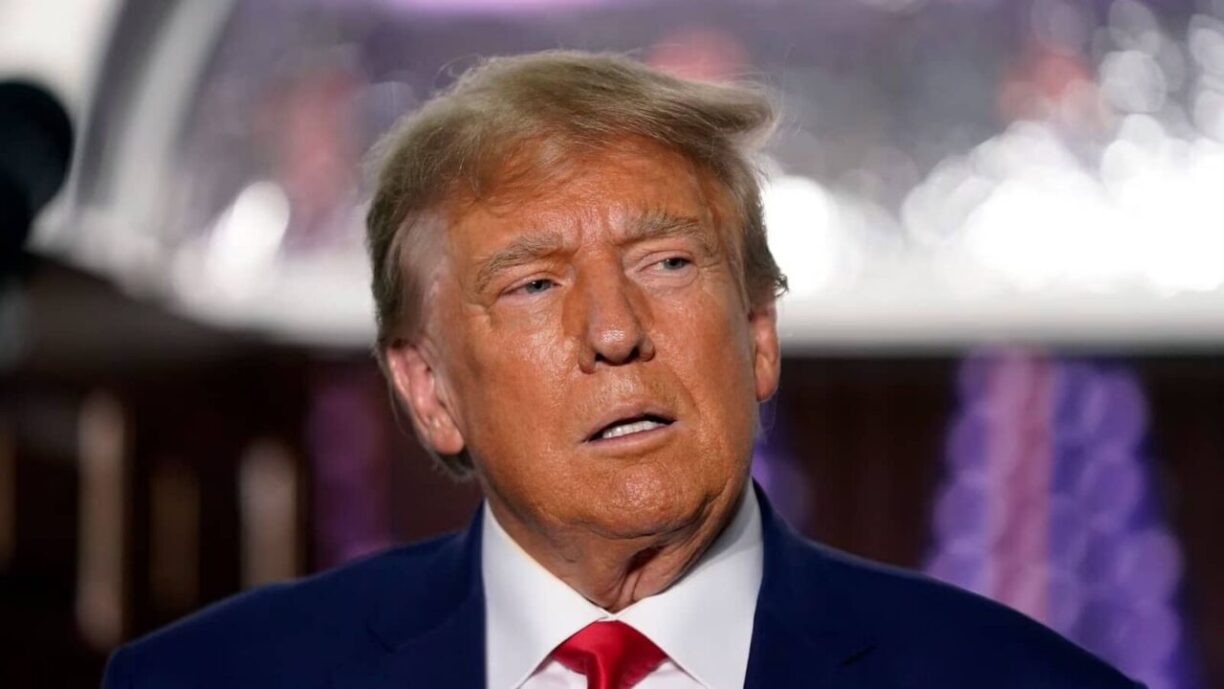News
The future of cryptocurrencies in the next 5 years

Cryptocurrencies have come a long way since the publication of the Bitcoin whitepaper in 2008. From a niche community creating a digital cash network to a major global asset class coveted by banks and investment firms, the landscape has changed dramatically.
So what comes next for the cryptocurrency industry? Where will cryptocurrencies be in 5 years?
Cryptographic technology will become more advanced
In some ways, it is nothing short of a miracle that cryptocurrencies have become as big as they did in the 2010-2020 period.
The ICO craze of 2018 raised around $15.7 billion for crypto projects. Now seen as something like a economic bubblethe trend saw many projects with little or no unique selling proposition raise large sums as the hype continued to grow.
As with the 1990s bubble, many of these projects failed, but the hype wasn’t entirely unfounded. Funding has piled up based on the promise of what blockchain and cryptocurrencies could potentially achieve, and that’s where the value lies: in the potential.
Today we don’t have to ask ourselves if blockchain will change things. We are seeing real-world integrations of numerous blockchain and cryptographic technologies that demonstrate that the technology has become practical.
For example, Fetch.ai is used to optimize the performance of a smart city project in Munich. Europe’s busiest port, Rotterdam, now uses blockchain to track its containers.
From here on, no one knows what the progress will be. There is talk of integrating blockchain into voting systems for safer elections, medical record systems, and many other applications. The Federal Reserve Bank of St. Louis released a statement praising some of the achievements of the decentralized financial sector, and we can expect to see continued advancements in DeFi technology as time goes on.
Companies like Visa and Mastercard have integrated crypto payments, a huge step forward in adoption. Nations around the world are also considering introducing it Central Bank Digital Currencies (CBDCs)a type of cryptocurrency minted and controlled by federal governments.
Five years from now, it seems likely that cryptocurrencies and their associated technologies will be much more intertwined with the day-to-day operations of many industries, from supply chain tracking, to finance, to manufacturing, to information technology and more.
It appears that the cryptocurrency market will increase in value
This is the kind of statement that can easily be misunderstood. There is never a guarantee that the value of a given cryptocurrency will increase, not even Bitcoin, which has exceeded expectations for years now.
However, the direction in which the overall market capitalization of cryptocurrencies is going can perhaps be more easily assessed. With Bitcoin ETFs now introducing more avenues for institutional investment than ever before and cryptocurrencies becoming less volatile as the industry matures, the future is bright for cryptocurrency investing.
The amount of money invested in Bitcoin ETFs on May 21 was $300 milliondemonstrating the purchasing power of large investors who are now involved in cryptocurrencies.
In 5 years, cryptocurrencies could even surpass current figures. Of course it all depends on regulation.
Regulations will impact the future of cryptocurrencies
One of the most discussed issues when it comes to cryptocurrencies is international regulation.
The SEC doubled the number of lawsuits filed against crypto projects from 2021 to 2023, specifically suing Ripple and Coinbase, with plans to sue decentralized trading platform Uniswap now under discussion.
US regulation against cryptocurrencies has a major impact on regulations worldwide, with smaller nations often taking inspiration from SEC guidelines.
So how exactly could regulation affect cryptocurrencies?
Crypto and unlicensed securities
Take Ethereum as an example. SEC Chairman Gary Gensler recently stated that the SEC considers Ethereum a security, although specific actions remain to be taken. If the ETH cryptocurrency were officially designated as a security, it would mean that exchanges that sold the currency would be responsible for selling unlicensed securities.
Buyers may also be legally liable, as are decentralized swap services that allow users to exchange ETH for other assets. This, of course, would spill over into the DeFi sector, which is primarily built on the Ethereum network.
SEC litigation against the Ethereum community is by no means a certainty, nor is it even considered likely by many cryptocurrency users at this time. However, the examples serve to highlight the risk of crypto projects coming into conflict with national and international regulation.
In China, of course, selling and even mining cryptocurrencies are completely illegal, while the United Kingdom bans British companies from selling crypto derivatives to the nation’s residents.
Cryptocurrency enthusiasts are often concerned about the impact regulation could have on the future of cryptocurrency. It’s worth noting, of course, that a complete lack of regulation could be equally detrimental to the longevity of the industry due to bad actors having free reign without any oversight.
What is the future of cryptocurrencies?
All the factors mentioned above so far are strongly interconnected. If the last few years are anything to go by, advancements in cryptocurrency technology and adoption are likely to continue. If that happens, it’s open season on cryptocurrency investing as more and more people look to cash out, aided by developments like crypto ETFs.
On the other hand, if global regulation severely restricted the sale or development of cryptocurrencies, then the industry would face a huge obstacle, as this would deal a severe blow to both the market capitalization and funding available for cryptocurrency research and on blockchain in general.
Are cryptocurrencies the future?
In our opinion, yes, cryptocurrencies are extremely well positioned to play a major role in key industries in the near future. It’s rare to see a new technology adopted as quickly as blockchain and cryptocurrency, and progress will likely continue as well.
World governments know that their residents, industries and even national banks are now invested in the cryptocurrency sector in one way or another, and hopefully a balance will be sought between overly restrictive regulation and overly lax regulation, allowing the industry to thrive while protecting its users from harm.
If technology, investment and regulation can find balance over the next five years, there’s no telling what the future of cryptocurrency holds.
News
How Ether Spot ETF Approval Could Impact Crypto Prices: CNBC Crypto World

ShareShare article via FacebookShare article via TwitterShare article via LinkedInShare article via email
CNBC Crypto World features the latest news and daily trading updates from the digital currency markets and gives viewers a glimpse of what’s to come with high-profile interviews, explainers and unique stories from the ever-changing cryptocurrency industry. On today’s show, Ledn Chief Investment Officer John Glover weighs in on what’s driving cryptocurrency prices right now and how the potential approval of spot ether ETFs could impact markets.
News
Miners’ ‘Capitulation’ Signals Bitcoin Price May Have Bottomed Out: CryptoQuant

According to CryptoQuant, blockchain data shows signs that the Bitcoin mining industry is “capitulating,” a likely precursor to Bitcoin hitting a local price bottom before reaching new highs.
CryptoQuant analyzed metrics for miners, who are responsible for securing the Bitcoin network in exchange for newly minted BTC. As outlined in the market intelligence platform’s Wednesday report, multiple signs of capitulation have emerged over the past month, during which Bitcoin’s price has fallen 13% from $68,791 to $59,603.
One such sign includes a significant drop in Bitcoin’s hash rate, the total computing power that backs Bitcoin. After hitting a record high of 623 exashashes per second (EH/s) on April 27, the hash rate has fallen 7.7% to 576 EH/s, its lowest level in four months.
“Historically, extreme hash rate drawdowns have been associated with price bottoms,” CryptoQuant wrote. In particular, the 7.7% drawdown is reminiscent of an equivalent hash rate drawdown in December 2022, when Bitcoin’s price bottomed at $16,000 before rallying over 300% over the next 15 months.
This latest hash rate drop follows Bitcoin’s fourth cyclical “halving” event in April, which cut the number of coins paid out to miners in half. According to CryptoQuant’s Miner Profit/Loss Sustainability Indicator, this has left miners “mostly extremely underpaid” since April 20, forcing many to shut down mining machines that have now become unprofitable.
CrypotoQuant said that miners faced a 63% drop in daily revenue after the halving, when both Bitcoin block rewards and transaction fee revenues were much higher.
During this time, Bitcoin miners were seen moving coins from their on-chain wallets at a faster rate than usual, indicating that they may be selling their BTC reserves“Daily miner outflows reached their highest volume since May 21,” the company wrote.
Among the sales of Bitcoin miners, whales and national governmentsBitcoin’s price drop in June also hurt Bitcoin’s “hash price,” a metric of Bitcoin Miner Profitability per unit of computing power.
“Average mining revenue per hash (hash price) continues to hover near all-time lows,” CryptoQuant wrote. “Hashprice stands at $0.049 per EH/s, just above the all-time low hashprice of $0.045 reached on May 1st.”
By Ryan-Ozawa.
News
US Congressman French Hill Doubles Down on Trump’s Pro-Crypto Stance

US lawmaker French Hill has noted that Donald Trump will take a more pro-crypto approach than the current administration. The run-up to the presidential election has seen cryptocurrencies become an issue with lawmakers making huge statements ahead of the polls. Donald Trump has also been reaching out to the industry, making a pro-crypto case.
French Hill Backs Trump’s Pro-Crypto Stance
Republican Congressman French Hill has explained the type of cryptocurrency regulatory framework he believes Donald Trump could adopt in the country. In a recent interview with CNBC, French Hill said that the recently passed FIT21 bill is the type of regulatory framework the Trump administration will adopt in the sector.
#FIT21 passed the House with 71 Democratic votes, it’s exactly the kind of digital asset regulatory framework former President Trump would support if re-elected.
See more on @SquawkCNBC🔽 photo.twitter.com/ceTmU4LApU
— French Hill (@RepFrenchHill) July 3, 2024
THE FIT21 Bill It is intended to protect investors and consumers in the market by establishing clear rules and powers for the various regulators in the sector. According to Hill, Trump will adopt it because it directs the Securities and Exchange Commission (SEC) and the Commodity Futures Trading Commission (CFTC) on the specific regulatory framework needed in the market.
“… for people who are innovating and starting a crypto token, a related business, custody of those assets, how to ensure consumer protection, so I think that framework is the right approach and that’s what I’m going to recommend to the President to pass, which is that we have not passed it between now and the end of this Congress.”
He also called Trump an innovative and pro-growth president in financial matters.
Cryptocurrency is going mainstream
This election cycle saw the cryptocurrency industry taking a place in mainstream issues following broader adoption across demographics. From candidates moving toward enthusiasts to recent pro-Congress legislation, cryptocurrencies have become a rallying point for officials. The U.S. regulatory landscape has been criticized for stifling growth due to frequent SEC LawsuitsThis has led executives to push for pro-cryptocurrency laws and raise money for pro-industry candidates.
Read also: Federal Reserve Predicts “AI Will Be Deflationary” to Stimulate Economy
David is a financial news contributor with 4 years of experience in Blockchain and cryptocurrency. He is interested in learning about emerging technologies and has an eye for breaking news. Keeping up to date with trends, David has written in several niches including regulation, partnerships, cryptocurrency, stocks, NFTs, etc. Away from the financial markets, David enjoys cycling and horseback riding.
News
US Court Orders Sam Ikkurty to Pay $84 Million for Cryptocurrency Ponzi Scheme

A federal court has ordered Jafia LLC and its owner, Sam Ikkurty, to pay nearly $84 million to cryptocurrency investors after ruling that the company was operating a Ponzi scheme.
The ruling, issued by Judge Mary Rowland in the U.S. District Court for the Northern District of Illinois, follows a lawsuit filed by the Commodity Futures Trading Commission (CFTC) in 2022 after the fund collapsed.
Judge Rowland found that Ikkurty, based in Portland, Oregon, did numerous false claims on his company’s hedge funds.
These included misleading statements about his trading experience and the promise of high and stable profits. Instead, Ikkurty used funds from new investors to pay off previous investors, a hallmark of a Ponzi scheme.
The Ponzi Scheme
The court found that Ikkurty misappropriated investment funds for personal use without the knowledge of the investors. These funds were used for personal use and were reported as Fraudulent Investmentscausing significant financial losses to customers.
This non-transparent operation violated Transparency Commission regulations, which led to the imposition of a hefty fine to compensate defrauded investors and restore some public confidence in the financial system.
Judge Rowland emphasized that fraudulent activity such as this violates the law and undermines the integrity of modern financial markets. The $84 million award seeks to address the financial harm inflicted on investors and reinforce the importance of legal compliance in cryptocurrency trading.
-

 Videos9 months ago
Videos9 months agoBitcoin Price AFTER Halving REVEALED! What’s next?
-

 Bitcoin8 months ago
Bitcoin8 months agoBitcoin Could Test Record Highs Next Week in ETF Flows, Says Analyst; Coinbase appears in the update
-

 Videos9 months ago
Videos9 months agoAre cryptocurrencies in trouble? Bitcoin Insider Reveals “What’s Next?”
-

 Videos9 months ago
Videos9 months agoCryptocurrency Crash Caused by THIS…
-

 Videos8 months ago
Videos8 months agoThe REAL reason why cryptocurrency is going up!
-

 Altcoin8 months ago
Altcoin8 months agoThe best Altcoins to buy before they rise
-

 Videos9 months ago
Videos9 months agoBlackRock Will Send Bitcoin to $116,000 in the Next 51 Days (XRP News)
-

 Videos9 months ago
Videos9 months agoDonald Trump: I like Bitcoin now! Joe Biden HATES cryptocurrencies.
-

 Videos8 months ago
Videos8 months agoSolana Cryptocurrencies: the future WILL SHOCK you | What comes next?
-

 News9 months ago
News9 months agoTON, AKT, AR expect increases of 15%+ as the market stabilizes
-

 Videos8 months ago
Videos8 months agoBitcoin Whale REVEALS: The 5 Best Coins to Make You a Millionaire!
-

 Videos8 months ago
Videos8 months agoBREAKING NEWS: The 19 best cryptocurrencies ready to skyrocket!





